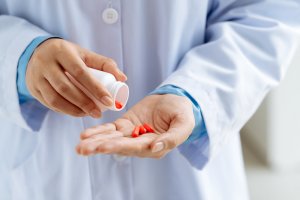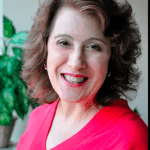The Doctor Is In and May be Addicted
Do members of the medical community use and abuse substances? “Doctors aren’t immune to addiction” is a Harvard Health blog’s answer to this question. What is the extent of these struggles? The rate mirrors that of the general population. “It is estimated that 10%-15% of all medical professionals in the United States will misuse drugs or alcohol at some point during their career.”
However, there’s more to this. It turns out those in the field “are more likely to abuse prescription medications. That’s the word from the National Institute of Health (NIH). This source cites higher rates of use of opioid narcotics and benzodiazepines. And certain specialties are more prone to addiction. These include anesthesiology, emergency medicine and psychiatry.
Keep counting. In addition to the three specialties cited above, there’s another. Surgeons typically present lower rates of substance use with two exceptions: alcohol and tobacco. When it comes to alcohol, they display high patterns of abuse and dependence. In fact, the rates are in the 10-25% range. That’s considerably above the “6.2% of the overall U.S. adult population with an alcohol use disorder.”
Reasons Why Doctors Use
Perhaps you’re wondering why all of this is occurring. The reasons are plentiful. The main ones include:
- Stress – Physicians contend with life and death issues on a daily basis. The demands on them are excruciating, as is the level of fairly constant pressure. They must manage heavy caseloads as well as attend to an array of non-clinical duties. Many doctors tend to work long hours. They deal with unforeseen emergencies. All of these factors are emblems of the profession and sources of intense strain.
- Supply – Many doctors have access to controlled substances. Take anesthesiologists as a case in point. In their role, they administer painkillers to patients during surgery. As noted, they have a high incidence of substance abuse. Factors include “proximity to large quantities of high addictive drugs” and “the relative ease of diverting particularly small quantities of these agents for personal use.”
- Self-medication – Often physicians practice medicine on themselves. They call in their own orders to a pharmacy or raid the supply of medication at their facility for what ails them. In ministering to their own needs, they can, like others who take prescription drugs, develop a dependency. The routine of treating their ills can lead to a habit – one of the substance abuse kind.
- Sport – Using substances may be a form of recreation for many who indulge; doctors may fall into this “manly who indulge” category as well. Since they prescribe substances to patients, they are aware of the positive effects. They may be curious and, as such, experiment and enjoy the high. And one leisure-based high can lead to another and so on.
- Silence – Physicians tend to be reticent about reporting those in their profession. If a doctor does not have definitive proof and only suspects a colleague has a substance use issue, he or she may resist taking action. A formal complaint exacts a heavy toll on a career and livelihood. It also may trigger retaliation. The code of silence prevails and, with it, so may the problem.
Doctors and Addiction Treatment
When a physician comes to terms with his or her substance use, there are paths they can take for treatment and recovery. The have many reasons to take swift action to limit risk to both themselves and their patients. Here in the U.S., most states have an independent Physician Health Program (PHP), which provides help to doctors battling drug and alcohol abuse. The PHP assists in preventing the physician from being subjected to punitive consequences. There are other benefits of going this route. “Many states protect the confidentiality of physicians who willingly participate in the PHP and do not require that a report be made to the Board of Medicine.”
Medical professionals who turn to a PHP typically undergo a rigorous regimen. It may include 90 days of inpatient rehabilitation and abstinence from substances. They engage in group therapy with peers as well as in individual psychotherapy. They also participate in 12-step sessions and other “mutual help” meetings. Drug screening, both planned and random, occurs; the same applies to monitoring meetings.
As American Addiction Centers notes for doctors: “Fortunately, assistance is available for those seeking help with their addiction. Treatment is usually very effective, and many programs also assist with reentry into clinical practice once the medical professional has undergone successful recovery.” Proper treatment makes all the difference. With it, “doctors can both recover from substance abuse and continue practicing within their profession.”
